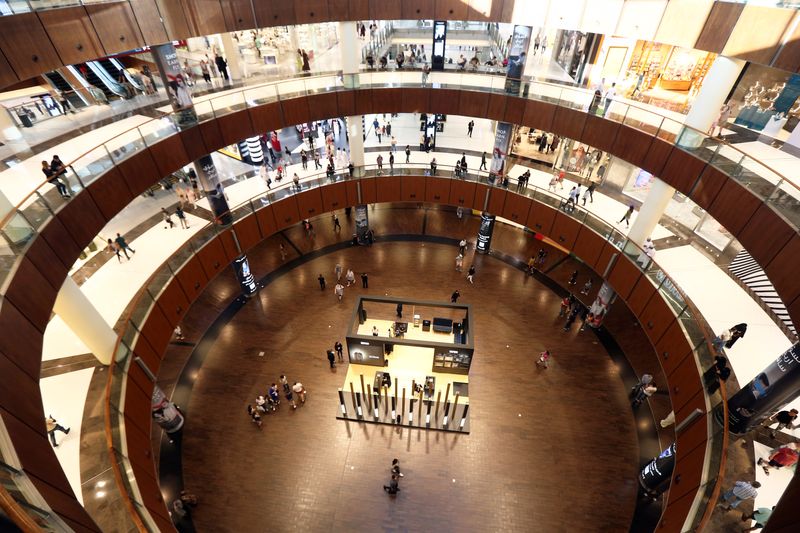DUBAI (Reuters) - The United Arab Emirates' non-oil private sector maintained brisk activity growth in September, albeit at a slightly slower pace than August, as new business drove gains in output and employment, a survey showed on Wednesday.
The seasonally adjusted S&P Global (NYSE:SPGI) UAE Purchasing Managers' Index (PMI) fell to 56.1 in September from 56.7 in August, which was a 38-month high and remained well above the series average since 2009 of 54.2.
Despite the slight fall in the index, it "was nonetheless indicative of another strong pace of improvement in the non-oil economy," wrote David Owen, economist at survey compiler S&P Global Market Intelligence.
"At a time of heightened global recession risks, these findings suggest that domestic businesses are keeping well clear of economic storms in other regions, helped by above-trend rates of growth in output and new business as the country continues to recover from the pandemic."
The output sub-index that measures business activity fell to 61.7 in September from 64.5 in August, which was its highest since June 2019.
Employment fell marginally to 51.4 in September from 51.5 in August, the sub-index's strongest reading since August 2021.
"Low price pressures are also helping to drive growth, with September data pointing to another month where inflation had rapidly come off the boil since the first half of the year," Owen wrote.

"Despite input costs rising (after dropping in August), they did only slightly, as downward movements for a swathe of commodity prices helped to ease the burden on firms' procurement budgets. Subsequently, input purchasing increased at the fastest rate for over three years, helping to boost inventories and supporting both higher new orders and stronger output expectations for the next 12 months."
Expectations for output over the next 12 months rose considerably in September to the sub-index's highest reading since June.